Shear Force Apparatus
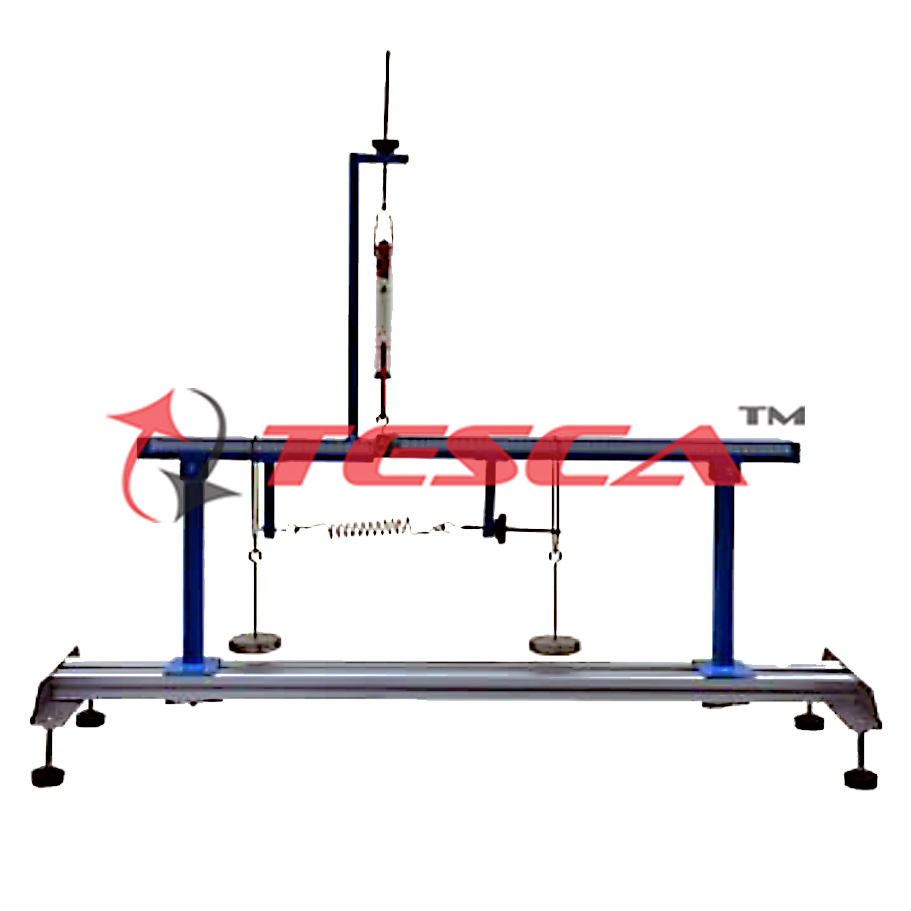
Order Code: 32195
Category: Strength of Materials Lab
Features Bench mounted Direct measurement of Shear Force Loads and supports can be placed in any position Visual practical verification of the concept of Shear Force Allows investigation of stability and influence lines Reinforces concept of eq...
SPECIFICATION
Features
Bench mounted
Direct measurement of Shear Force
Loads and supports can be placed in any position
Visual practical verification of the concept of Shear Force
Allows investigation of stability and influence lines
Reinforces concept of equilibrium of vertical forces & moments
Optional DAQ with ‘LabView’ interface
A length of material supported horizontally and carrying vertical loads is called a beam. The loading causes bending and transverse shearing. The loads and reactions are the 'external' forces acting on the beam. They must be in equilibrium. However, the strength of the beam depends on 'internal' forces. This experiment demonstrates the nature of these internal forces and their dependence on the external system of forces.
In the Tesca Shear Force Apparatus, the experimental beam is in two parts, joined by a pair of ball bearing rollers running in flat vertical tracks. To develop the internal beam forces at the section an under slung tension spring is used to resist the bending moment, while an overhung spring balance provides the vertical shearing force. Due to the mechanical arrangement, there must always be a net downward load on the longer side of the split beam. The beam is simply supported on end bearings and several weight hangers can be attached at any position on either side of the joint. A hinged metal strip is available to simulate the loading pattern of a paneled girder for a more advanced experiment on influence lines.
This equipment is part of a range designed to both demonstrate and experimentally confirm basic engineering principles. Great care has been given to each item so as to provide wide experimental scope without unduly complicating or compromising the design. Each piece of apparatus is self contained and compact. Setting up time is minimal, and all measurements are made with the simplest possible instrumentation, so that the student involvement is purely with the engineering principles being taught.
Optionally, computer interface & sensors to DAQ software with ‘LabView’ offered. A complete instruction manual is provided describing the apparatus, its application, experimental procedure and typical test results.
Specifications
To perform a range of experiments designed to both demonstrate and experimentally confirm basic engineering principles
To observe the action of shear force at a section in a beam and to compare the measured and theoretical values
To comprehend the action of shear and moment of resistance in a beam
To consist of 2 simple supports; a rigid aluminum alloy beam cut into two unequal
lengths, with a frictionless hinge at the joint which permits minimal vertical movement, whilst allowing bending
Analogue spring balance measures direct force at the ‘cut’ section
Multiple load positions achievable
To be bench top mounted
Set of slotted weights included
Technical Specifications
1. Overall length: 1000mm
2. Test Span variable
3. Cross section of beam: 50mmx25mm
4. Height of support: 300mm
5. Cut section: 350mm from support
6. Electronic Force Gauge
7. Horizontal force: 150mm from centre pin
8. Force Gauge capacity: 200N
9. Digital Force Gauge indicator: 0.1N resolution
10. Able to load beam at any location.
11. 3 nos, load hangers
12. 10 nos, 10N weights
Optional
Usable on ‘Tesca mounting Frame 32150
Data acquisition DAQ software, through USB available in ‘LabView’
Experiments
1. To comprehend the action of shear in a beam
2. To measure the shearing force at a section of a loaded beam, and to compare with a theoretical estimate
3. To study the definition of an influence line for shear force

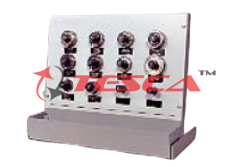
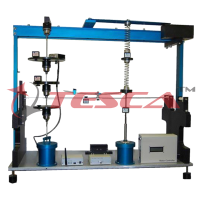
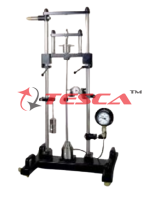
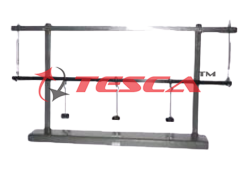
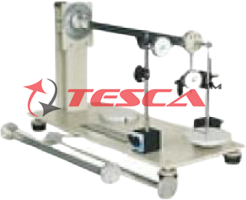
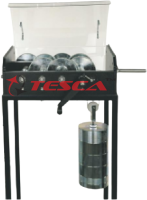
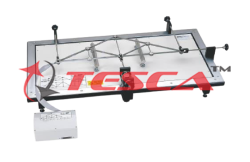
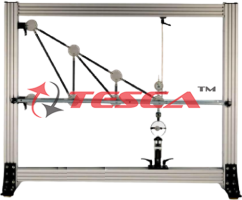
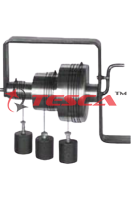

 91-9829132777
91-9829132777